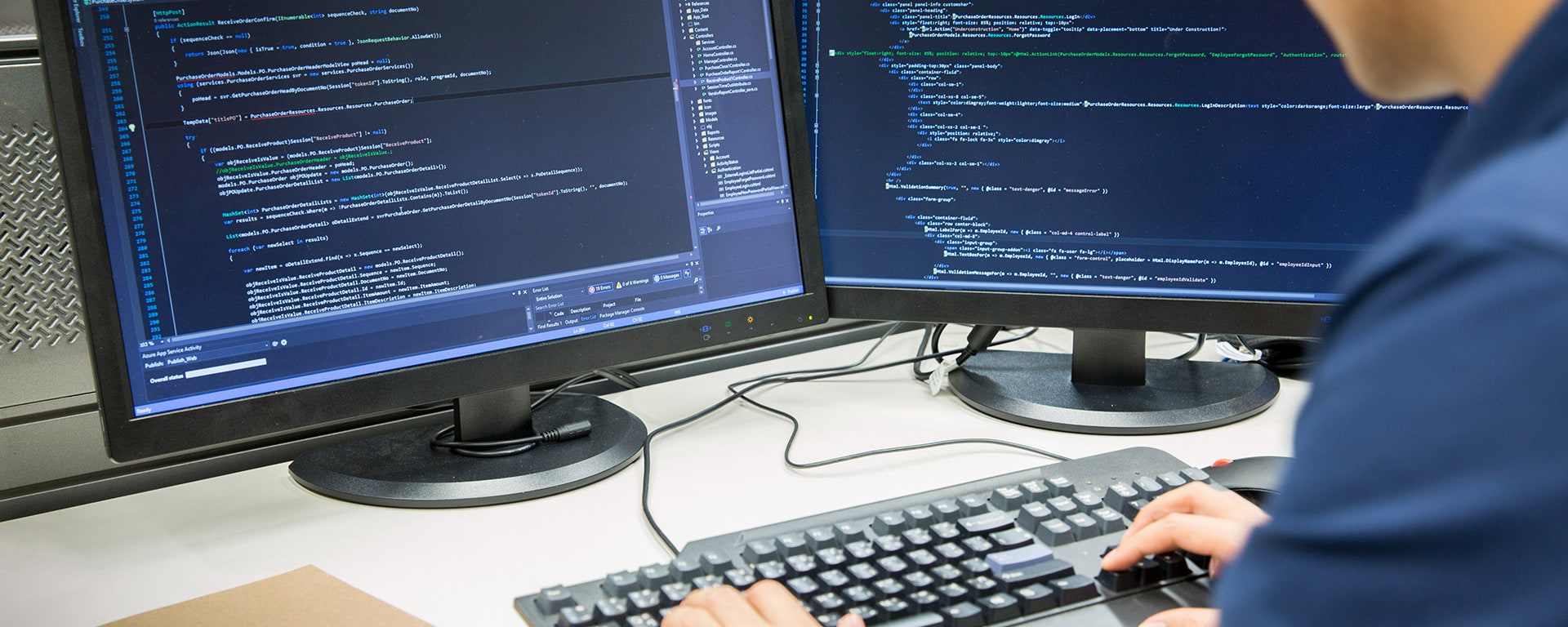What do you do as a mathematical-technical software developer?
As a mathematical-technical software developer, your job is to write programmes that your customers need. In more complicated terms, you learn to develop and programme solutions for a wide range of software challenges. To do this, you first talk to your clients to find out what your software should be able to do. Following the customer meeting, you will translate what you have discussed into mathematical formulae and algorithms. Then it’s time to get down to business, namely programming. Using various programming languages such as C+, Python or Java, you write a programme that does exactly what the customer wants. For example, software that analyses data from databases to create statistics. Or a programme that executes invoices in the accounting department. Or interfaces between different programmes. Once the code is ready, it’s time for the test phase. Here you check your software for errors and correct them. Of course, you document every step. Because it is important that your team can understand what changes you have made. After all, programming is above all a team effort. As soon as all errors have been eliminated, you deliver the finished programme. This includes training your clients in the operation and use of the software. You explain all the functions and are also available to answer questions afterwards. After all, hardly anyone knows the software as well as you do!
Where are you needed?
Software and IT are becoming increasingly important – in all industries and all over the world. That’s why a dual apprenticeship in mathematical-technical software development gives you the best prospects on the labour market. In addition to software manufacturers, more and more large companies and administrations are also looking for specialists for their IT departments. Universities and research institutions can no longer do without software developers who write programmes, for example to evaluate research data or collaborate with other institutions on the other side of the world. With the skills you acquire during your dual training as a mathematical-technical software developer, you will be ideally equipped for employment in these areas.
What should you bring with you?
Mathematical-technical software development is a very tricky and demanding job. That’s why most training companies also want you to have a university entrance qualification. At the same time, the demand for trainees in the IT sector is very high, so you can also score points with other qualities. Perhaps you programme in your spare time or have already completed an internship in this field? You should also enjoy puzzling until you find the right solution to a problem. Patience is also required when searching for an error in your code. You should also have an interest in maths. Because as you probably know, calculations are the basis of every computer programme. Don’t worry, you don’t have to get an A in maths and you don’t have to know everything yet. During your apprenticeship, you will learn everything you need, including the things you didn’t understand at school.
Your apprenticeship at a glance
- Duration 3 years
- Theory at vocational school, practice at the training company
- Training content ranges from maths and statistics to databases, programming languages, documentation and project management.
- After the apprenticeship, you can continue your education in various directions. For example, you can gain additional qualifications in project management or database development, which will have a positive impact on your salary. Further training in software development will deepen your knowledge and prepare you for responsible tasks within your company. You can also enrol for a degree in computer science or mathematics to advance your career. Many software developers are also very successful with self-employment, as the demand for professionals for project work is also high.
